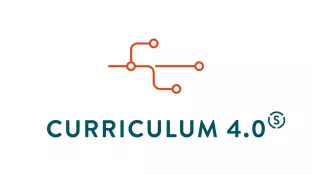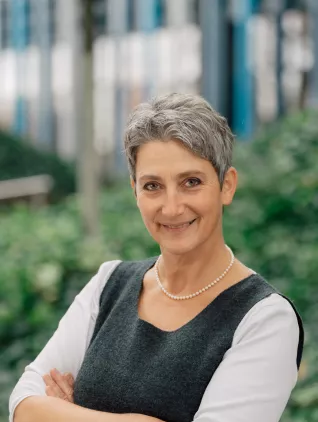Curriculum 4.0.nrw - Designing university curricula for the digital world
Research project at a glance

Departments and Instituts
Period
01.01.2021 to 01.09.2022
Website
Project Description
The potentials and effects of digitalisation today encompass all areas of human and social activity. Universities are therefore responsible for enabling their students to develop competences that not only include the competent use of digital technologies, but also the ability to assess the potential and effects of digitisation in society and the world of work, to actively and reflexively shape digitisation processes and to keep pace with the rapid dynamics of change.
In the Department of Electrical Engineering, Mechanical Engineering and Technical Journalism, one aim of this funding line is to further develop the Master’s program Sustainable Engineering, which addresses the topics of the funding line such as technical innovation and digitization.
In addition, three new modules will be further developed for the Bachelor’s degree programmes (“Power Hardware-in-the-Loop”, “Praktikum Controller Hardware-in-the-Loop” and “Control of grid-connected inverters”). The new format will start in the winter semester of 20/21 and the summer semester of 2021 under the lead of the visiting professor Prof. Dr. Jean Patric Da Costa from the University Tecnologica Federal Do Parana and Prof. Dr. Marco Jung. Here, the first approach of a “P-HIL RemoteLAB and Lecture” is integrated. For this purpose, a Hardware-in-the-loop (HiL) laboratory system will be set up, which will be accessible via remote access and the Internet and thus enable students to carry out practical laboratory tests.
In addition, a corresponding platform “Open Energy Gym” (e-Gym for short) will be set up for teaching. This will include different models – which can be used in the Remote-LAB – instructions for remote access and the possible tests to be performed. Furthermore, the results of the executed experiments will also be shown here.
Thus, thanks to the Remote-LAB, the practical part of the further developed courses can also be executed. In future semesters, the implemented laboratory system and the tests will be expanded and partly carried out in presence. The experiments to be developed should include the following topics in the respective courses:
Course “Power Hardware-in-the-Loop”
- The behaviour of a battery inverter or a DC fast charging station over the development stages (simulation => laboratory => reality)
- Optimization of the P-HIL feedback loop (e. g. simulation time step, dynamic system behavior, delay) and their impact on the results
Course “Control of grid-connected inverters”
- Development and testing of fault network detection of PV inverters (e. g. system must be switched off in case of a long voltage drop)
Through the feature of remote access, the e-Gym platform can be accessed from all over the world. Thus, not only students of the H-BRS but also other partner universities and research institutions can access it. At the same time, this will also allow coupling with their infrastructure, creating a geographically distributed laboratory.
For this purpose, the Remote-LAB will be set up as described above. The second step will be the coupling of the infrastructures of the UTFPR in Brazil and the Fraunhofer IEE in Kassel. For this, the time difference with Brazil will also be advantageous, since the students of the universities will use the systems with a time delay, which will ensure high utilization and utilization.

